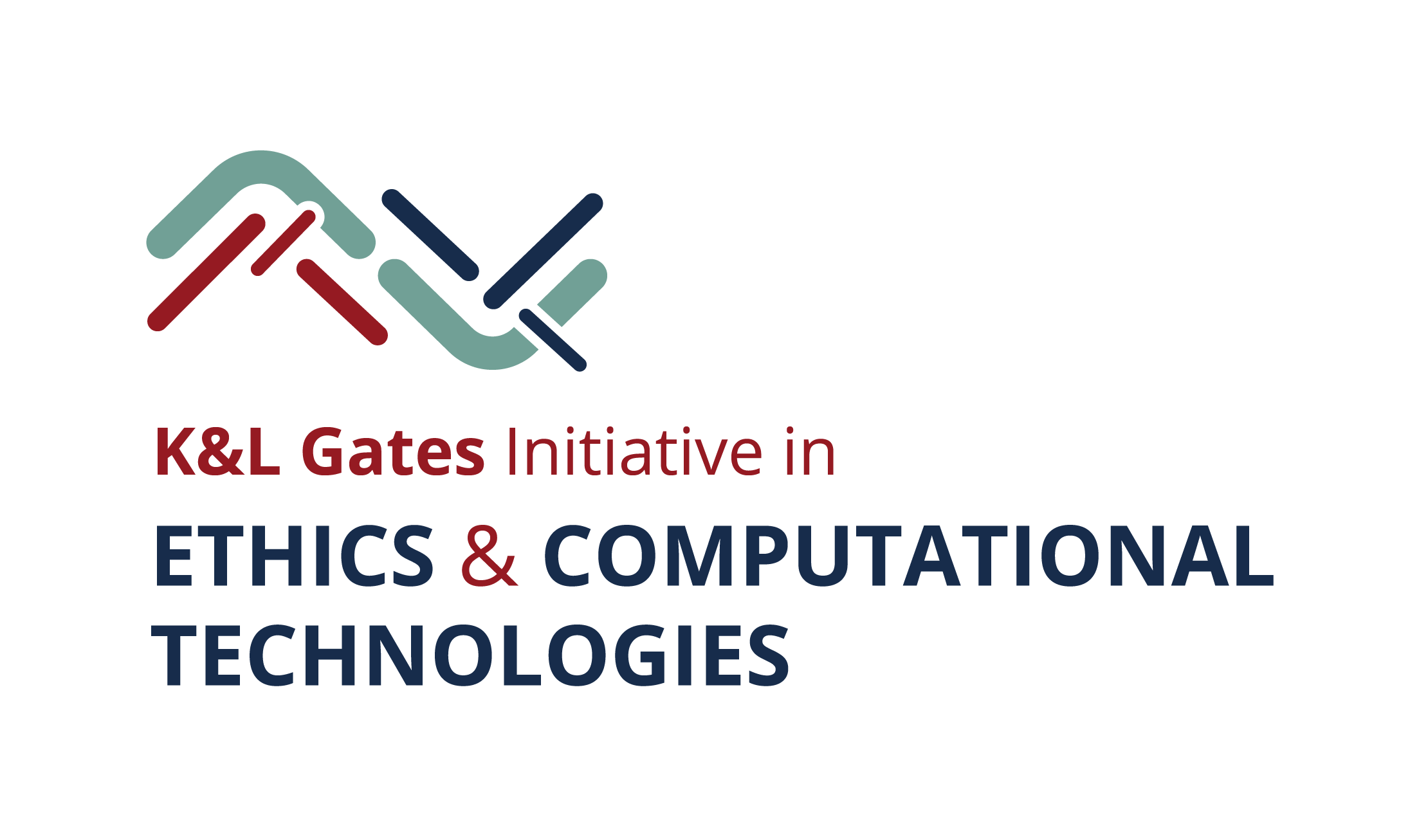Ethics and Innovative Clinical Trial Designs:
A Multi-Stakeholder Perspective on Adaptive Designs
Thursday, Apr. 24, 2025
9:00 a.m. BST
Newnham College, University of Cambridge
Overview
Join us for a full-day workshop at the University of Cambridge focused on ethical and methodological issues surrounding adaptive clinical trial designs. This event will bring together leading statisticians, ethicists, industry representatives, policymakers (including the WHO), regulators (including the FDA), and patient advocacy groups to discuss the evolving landscape of adaptive clinical trial designs and their ethical implications.
Why is this Workshop important at this time
Clinical trials play a crucial role in advancing medical knowledge and managing uncertainty by systematically comparing the effects of various interventions. In a confirmatory setting, they provide a structured approach that enables reliable conclusions about the relative safety and efficacy of treatments. However, these trials are complex, require significant time and resources and raise ethical concerns, particularly due to practices such as randomizing participants to different interventions and implementing additional procedures like blood draws or biopsies. If the evidence produced is flawed, it can have serious consequences, potentially leading to the discontinuation of effective therapies or the adoption of interventions that are ineffective or even harmful. Therefore, while the urgency to gain insights and accelerate learning is important, it must be carefully balanced with the need for reliability, generalizability, and the ethical treatment of participants.
Recently, innovative statistical methods have been proposed to allow clinical trials to adapt in various ways. Some forms of adaptation are already widely accepted and commonly used, such as stopping a trial early when treatments are statistically effective or ineffective. However, other forms of adaptation are more controversial. This includes complex computational methods for dynamically adjusting the probability that individuals are randomized to different interventions, aiming to maximize the proportion of participants receiving the most effective treatment, if one exists.
The controversy surrounding these methods raises both ethical and methodological questions. There is ongoing debate about whether, when and which of such methods are more efficient, meaning they can answer research questions with fewer participants without compromising reliability or generalizability. This debate is fueled by competing simulation studies that present conflicting assessments of these designs, as well as concerns that certain approaches, particularly Bayesian designs, may introduce unacceptable bias. Adaptive trials played a crucial role in addressing the COVID-19 pandemic, leading to increased public interest in this methodology and highlighting the need to resolve outstanding uncertainties about their statistical and ethical implications.
SPECIAL Sessions
April 23: Pre-Workshop Course
Cambridge and Oxford experts will offer a foundational course covering key statistical and ethical issues in adaptive clinical trials. This session is open to trial statisticians, regulators, and all participants.
April 25: Follow-Up Workshop at MRC BSU
A focused, collaborative session involving speakers, organizers, and invited participants to draft a policy document addressing critical ethical and policy questions in adaptive trials. This workshop is open to invited participants, speakers and organizers.
CONFERENCE OBJECTIVES
Foster Public Awareness
Convene experts and key stakeholders to increase public understanding of the ethical dilemmas and methodological uncertainties associated with innovative trial designs in this socially important computational technology. By engaging key stakeholders, we also aim to re-examine known concerns surrounding the use of adaptive designs, determining when those concerns are justified and whether they can be effectively addressed.
Provide Regulatory Guidance
Facilitate discussions among regulators and policymakers to establish clear criteria for supporting and accepting evidence generated from novel trial designs.
Address Stakeholder Concerns
Engage patient advocates and industry representatives to evaluate the implications of participation, including cost, complexity, and intellectual property issues, ensuring that diverse perspectives are considered.
SESSION RECORDINGS
Talk by Andrea Manfrin, Medicines & Healthcare Regulatory Agency
Update on UK Regulatory Reform and Future Development
Talk by Frank Bretz, Novartis
Adaptive Designs – The Swiss Army Knife of Modern Clinical Trials?
Talk by Jonathan Kimmelman, McGill University
The WHO Report on Adaptive Platform Trials
Talk by Gregory Levin, US Food and Drug Administration
Adaptive Designs: Key Principles and Some Recommendations from a Regulatory Perspective
Talk by Richard Milne, University of Cambridge
Possibilities for patient and public and engagement and involvement in adaptive trials
Talk by Rieke van der Graaf, University of Utrecht
Ethical assumptions underlying the use of adaptive designs
Talk by Alex John London, Carnegie Mellon University
Ethical Adaptation: From Initiation, Adding or Dropping Arms, and More
Talk by Jerome Singh, University of KwaZulu-Natal
Adaptive Clinical Trial designs: ethics and governance considerations
Talk by Haiyan Zheng, University of Bath
Using Bayesian designs to combine available evidence for better decision-making
Talk by Philip Pallmann, University of Cardiff
Adaptive designs in action: basic concepts, efficiencies, and challenges
Talk by Thomas Jaki, MRC Biostatistics Unit
From routinely used to more complex adaptive designs
CONFERENCE SPEAKERS AND THEMES
THEME: STATISTICAL METHODS FOR ADAPTIVE DESIGNS
 Philip Pallmann, Ph.D, is a Principal Research Fellow at the Centre for Trials Research, specializing in the design, conduct, analysis, and reporting of randomized controlled trials. His background in applied statistics supports his work across clinical areas such as infections, neurodegenerative diseases, and population health, with a focus on innovative methods like adaptive trial designs. He co-leads the Adaptive Designs Working Group of the MRC-NIHR Trials Methodology Research Partnership and serves on the MRC-NIHR Efficacy and Mechanism Evaluation (EME) funding committee. Dr. Pallmann is also an Associate Editor for Trials.
Philip Pallmann, Ph.D, is a Principal Research Fellow at the Centre for Trials Research, specializing in the design, conduct, analysis, and reporting of randomized controlled trials. His background in applied statistics supports his work across clinical areas such as infections, neurodegenerative diseases, and population health, with a focus on innovative methods like adaptive trial designs. He co-leads the Adaptive Designs Working Group of the MRC-NIHR Trials Methodology Research Partnership and serves on the MRC-NIHR Efficacy and Mechanism Evaluation (EME) funding committee. Dr. Pallmann is also an Associate Editor for Trials.
 Haiyan Zheng, PhD, is a Reader in Statistics at the Department of Mathematical Sciences, University of Bath, and holds an honorary appointment at The Institute of Cancer Research. She leads a team focused on developing advanced statistical methods for precision medicine clinical trials, with notable projects including STEEP, IDENT, and SEER-NTA. Her research interests encompass adaptive trial designs, Bayesian methods, finite mixture distributions, and precision medicine.
Haiyan Zheng, PhD, is a Reader in Statistics at the Department of Mathematical Sciences, University of Bath, and holds an honorary appointment at The Institute of Cancer Research. She leads a team focused on developing advanced statistical methods for precision medicine clinical trials, with notable projects including STEEP, IDENT, and SEER-NTA. Her research interests encompass adaptive trial designs, Bayesian methods, finite mixture distributions, and precision medicine.
 Thomas Jaki, PhD, is an MRC Investigator (Programme Leader) at the MRC Biostatistics Unit in the Efficient Study Design theme and is also Chair for Computational Statistics at the University of Regensburg. Thomas' research interests include; statistical methods in health research, experimental design, sample size determination, statistical tests, and confidence intervals. Thomas has significantly contributed to platform studies, including his work during the COVID-19 pandemic on the RECOVERY Trial.
Thomas Jaki, PhD, is an MRC Investigator (Programme Leader) at the MRC Biostatistics Unit in the Efficient Study Design theme and is also Chair for Computational Statistics at the University of Regensburg. Thomas' research interests include; statistical methods in health research, experimental design, sample size determination, statistical tests, and confidence intervals. Thomas has significantly contributed to platform studies, including his work during the COVID-19 pandemic on the RECOVERY Trial.
 Sofia Villar, PhD (Panel Chair)
Sofia Villar, PhD (Panel Chair)
Sofia is an MRC Investigator (Programme Leader) focused on enhancing clinical trial design using optimization, machine learning, and statistics. Her work prioritizes patient-centric trials while addressing practical barriers. She holds a Ph.D. in Business Administration and Quantitative Methods from Universidad Carlos III de Madrid and joined the MRC Biostatistics Unit in 2013. Villar co-leads the Adaptive Designs Working Group and serves as the Academic Lead for Equality, Diversity, and Inclusion. She is the senior statistician for several national trials, including the NIHR-funded PIPAH and NOTACS trials.
THEME: ETHICS ASPECTS FOR ADAPTIVE DESIGNS
 Alex John London, PhD, is the K&L Gates Professor of Ethics and Computational Technologies, director of the Center for Ethics and Policy at CMU’s Department of Philosophy, and chief ethicist at CMU’s Block Center for Technology and Society. London’s work focuses on ethical and policy issues surrounding the development and deployment of novel technologies in medicine, biotechnology and AI, and on methodological issues in theoretical and practical ethics.
Alex John London, PhD, is the K&L Gates Professor of Ethics and Computational Technologies, director of the Center for Ethics and Policy at CMU’s Department of Philosophy, and chief ethicist at CMU’s Block Center for Technology and Society. London’s work focuses on ethical and policy issues surrounding the development and deployment of novel technologies in medicine, biotechnology and AI, and on methodological issues in theoretical and practical ethics.
 Jerome Singh, PhD, is the Head of Ethics and Law, Centre for the AIDS Programme of Research in South Africa, Nelson R. Mandela School of Medicine, Univ. of KwaZulu-Natal (UKZN); Adjunct Professor, Dalla Lana School of Public Health Sciences and Joint Centre for Bioethics, Univ. of Toronto; Course Director, Bioethics, Howard College School of Law, UKZN; Senior Bioethics Researcher, Sandra Rotman Centre, Toronto; Consultant, WHO and UN Interregional Crime and Justice Research Institute; Special Adviser, Biomedical Research Ethics Committee, Nelson Mandela School of Medicine. Co-Chair, Ethics Working Group, HIV Prevention Trial Network, NIH US. Founding Member and inaugural Co-Chair, South African Young Academy of Science. Member, research bodies, including: International Research Ethics Board, MSF; Research Ethics Committee, South African Human Sciences Research Council; Scientific Advisory Board, Aurum Institute of Health Research; Advisory Panel, Critical Path for TB Drug Regimens.
Jerome Singh, PhD, is the Head of Ethics and Law, Centre for the AIDS Programme of Research in South Africa, Nelson R. Mandela School of Medicine, Univ. of KwaZulu-Natal (UKZN); Adjunct Professor, Dalla Lana School of Public Health Sciences and Joint Centre for Bioethics, Univ. of Toronto; Course Director, Bioethics, Howard College School of Law, UKZN; Senior Bioethics Researcher, Sandra Rotman Centre, Toronto; Consultant, WHO and UN Interregional Crime and Justice Research Institute; Special Adviser, Biomedical Research Ethics Committee, Nelson Mandela School of Medicine. Co-Chair, Ethics Working Group, HIV Prevention Trial Network, NIH US. Founding Member and inaugural Co-Chair, South African Young Academy of Science. Member, research bodies, including: International Research Ethics Board, MSF; Research Ethics Committee, South African Human Sciences Research Council; Scientific Advisory Board, Aurum Institute of Health Research; Advisory Panel, Critical Path for TB Drug Regimens.
 Rieke van der Graaf, PhD, is an associate professor of Medical Ethics at the UMC Utrecht, Netherlands. Her research interests are global justice in international research, the integration of care and research, fair subject selection and the ethics of innovative research designs.
Rieke van der Graaf, PhD, is an associate professor of Medical Ethics at the UMC Utrecht, Netherlands. Her research interests are global justice in international research, the integration of care and research, fair subject selection and the ethics of innovative research designs.
 Mark Sheehan, PhD (Panel Chair)
Mark Sheehan, PhD (Panel Chair)
Mark is the Oxford Biomedical Research Centre (BRC) Ethics Fellow at the Ethox Centre. His current research projects encompass a range of overlapping issues that arise in the context of population-level health research and governance and public health ethics. He has an ongoing interest in methodology in ethics and bioethics which focuses on: (i) qualitative methodologies and their relationship to ethics and ethical claims; and (ii) the nature and force of ethical arguments in practical contexts. As BRC Ethics Fellow, Mark is involved in research ethics and governance as well as Patient and Public Involvement (PPI) across the Oxford NIHR BRC themes.
THEME: INDUSTRY, GOVERNMENTAL, AND INTERNATIONAL PERSPECTIVES
 Frank Bretz, PhD, is a Distinguished Quantitative Research Scientist at Novartis. He has supported the methodological development in various areas of pharmaceutical statistics, including dose finding, estimands, multiple comparisons, and adaptive designs. Frank is an Adjunct Professor at the Hannover Medical School (Germany) and the Medical University Vienna (Austria). Frank is a Fellow of the American Statistical Association
Frank Bretz, PhD, is a Distinguished Quantitative Research Scientist at Novartis. He has supported the methodological development in various areas of pharmaceutical statistics, including dose finding, estimands, multiple comparisons, and adaptive designs. Frank is an Adjunct Professor at the Hannover Medical School (Germany) and the Medical University Vienna (Austria). Frank is a Fellow of the American Statistical Association
 Jonathan Kimmelman, PhD, is an Associate Professor in Biomedical Ethics at McGill University. Kimmelman received the 2006 Maud Menten New Investigator Prize (Institute of Genetics), a CIHR New Investigator Salary Award (2008), a Friedrich Bessel-Humboldt Fellowship (2014), and was elected as a Hastings Center Fellow (2018). He has been a commentator in numerous media outlets, including the New York Times, Globe and Mail, and BBC World Service. He also has served in an advisory capacity for the World Medical Association, FDA, and the Canadian Institute of Health Research. Kimmelman formerly chaired the ethics and public policy committee of the International Society of Stem Cell Research, where he led revisions of the society’s ethics guidelines for stem cell research and clinical translation. He has served as a member on three National Academy of Medicine Committees – including one advising NASA on Health Standards for Long Duration and Exploration Spaceflights. He is a deputy editor at Clinical Trials, and an associate editor at PLoS Biology.
Jonathan Kimmelman, PhD, is an Associate Professor in Biomedical Ethics at McGill University. Kimmelman received the 2006 Maud Menten New Investigator Prize (Institute of Genetics), a CIHR New Investigator Salary Award (2008), a Friedrich Bessel-Humboldt Fellowship (2014), and was elected as a Hastings Center Fellow (2018). He has been a commentator in numerous media outlets, including the New York Times, Globe and Mail, and BBC World Service. He also has served in an advisory capacity for the World Medical Association, FDA, and the Canadian Institute of Health Research. Kimmelman formerly chaired the ethics and public policy committee of the International Society of Stem Cell Research, where he led revisions of the society’s ethics guidelines for stem cell research and clinical translation. He has served as a member on three National Academy of Medicine Committees – including one advising NASA on Health Standards for Long Duration and Exploration Spaceflights. He is a deputy editor at Clinical Trials, and an associate editor at PLoS Biology.
 Katherine Littler, PhD, is the co-lead of the Global Health Ethics & Governance Unit at WHO Headquarters in Geneva, focusing on integrating ethics into global health decision-making and enhancing ethics capacity worldwide. Her work addresses COVID-related issues, governance for emerging technologies, and ethical concerns in clinical trial design. Prior to joining WHO in 2018, she co-led the Global Policy Team at Wellcome, advising on research ethics and governance. Katherine has been involved in various international partnerships and oversight bodies, including the PHE Ebola Governance Group.
Katherine Littler, PhD, is the co-lead of the Global Health Ethics & Governance Unit at WHO Headquarters in Geneva, focusing on integrating ethics into global health decision-making and enhancing ethics capacity worldwide. Her work addresses COVID-related issues, governance for emerging technologies, and ethical concerns in clinical trial design. Prior to joining WHO in 2018, she co-led the Global Policy Team at Wellcome, advising on research ethics and governance. Katherine has been involved in various international partnerships and oversight bodies, including the PHE Ebola Governance Group.
 David Robertson, PhD (Panel Chair)
David Robertson, PhD (Panel Chair)
David is a Senior Research Associate at the MRC Biostatistics Unit, University of Cambridge, where I have been based since 2013. His research focuses on the development of novel methodology for the design and analysis of adaptive clinical trials. From 2018 to 2021, David held a Biometrika Trust Research Fellowship, which explored questions around error rate control for clinical trial designs that test multiple hypotheses simultaneously. My main areas of research focus include: estimation after adaptive designs; response-adaptive randomisation in clinical trials and multiple hypothesis testing.
THEME: REGULATORY PERSPECTIVES
 Andrea Manfrin, PhD, is a qualified pharmacist in Italy, the UK and Switzerland with international research and teaching experience, community and hospital pharmacy, pharmaceutical industry, consultancy and entrepreneurship expertise. He is specialised in health services research, outcome measures, public health with significant expertise in advanced statistical analysis. Andrea has experience in small and large projects, team management, strategic planning, budget management, design and evaluation of new cost-effective health care services. Andrea, as Faculty Director of Research, leads the research teams across the schools of Medicine, Dentistry, Pharmacy and Biomedical Sciences.
Andrea Manfrin, PhD, is a qualified pharmacist in Italy, the UK and Switzerland with international research and teaching experience, community and hospital pharmacy, pharmaceutical industry, consultancy and entrepreneurship expertise. He is specialised in health services research, outcome measures, public health with significant expertise in advanced statistical analysis. Andrea has experience in small and large projects, team management, strategic planning, budget management, design and evaluation of new cost-effective health care services. Andrea, as Faculty Director of Research, leads the research teams across the schools of Medicine, Dentistry, Pharmacy and Biomedical Sciences.
 Andrew Thomson, PhD, is a statistician in the Taskforce dedicated to Data, Analytics and Methodology at the European Medicines Agency. He provides methodological advice and guidance across all stages of development, and across all therapeutic areas. He also is the lead of the Statistics subgroup of ICH E11A on pediatric extrapolation, as well as the Regulatory Chair. Before joining EMA, he headed the Epidemiology Unit in the Vigilance and Risk Management of Medicines Division of the MHRA, the UK regulator and was also previously a Statistical Assessor within the Licensing Division of the MHRA.
Andrew Thomson, PhD, is a statistician in the Taskforce dedicated to Data, Analytics and Methodology at the European Medicines Agency. He provides methodological advice and guidance across all stages of development, and across all therapeutic areas. He also is the lead of the Statistics subgroup of ICH E11A on pediatric extrapolation, as well as the Regulatory Chair. Before joining EMA, he headed the Epidemiology Unit in the Vigilance and Risk Management of Medicines Division of the MHRA, the UK regulator and was also previously a Statistical Assessor within the Licensing Division of the MHRA.
 Gregory Levin, PhD, is an Associate Director, Statistical Science and Policy in the Office of Biostatistics, U.S Food & Drug Administration. He received a Ph.D. in biostatistics from the University of Washington in 2012. Greg has experience supporting drug review across a wide range of therapeutic areas and has represented CDER on several policy and guidance working groups, including efforts related to adaptive design, master protocols, benefit-risk, and the evaluation of effectiveness
Gregory Levin, PhD, is an Associate Director, Statistical Science and Policy in the Office of Biostatistics, U.S Food & Drug Administration. He received a Ph.D. in biostatistics from the University of Washington in 2012. Greg has experience supporting drug review across a wide range of therapeutic areas and has represented CDER on several policy and guidance working groups, including efforts related to adaptive design, master protocols, benefit-risk, and the evaluation of effectiveness
 Richard Milne PhD is a social scientist at the Kavli Centre for Ethics, Science, and the Public, and Wellcome Connecting Science, focusing on social and ethical issues in genomics and data-driven medicine. He co-leads the "Ethics, Law, and Society" strand at Cambridge Public Health. With a PhD in Science and Technology Studies from UCL, Dr. Milne's work examines the interface between science and the public. He has also taught at UCL, Sheffield, and Birkbeck.
Richard Milne PhD is a social scientist at the Kavli Centre for Ethics, Science, and the Public, and Wellcome Connecting Science, focusing on social and ethical issues in genomics and data-driven medicine. He co-leads the "Ethics, Law, and Society" strand at Cambridge Public Health. With a PhD in Science and Technology Studies from UCL, Dr. Milne's work examines the interface between science and the public. He has also taught at UCL, Sheffield, and Birkbeck.
 Alex John London, PhD (Panel Chair)
Alex John London, PhD (Panel Chair)







